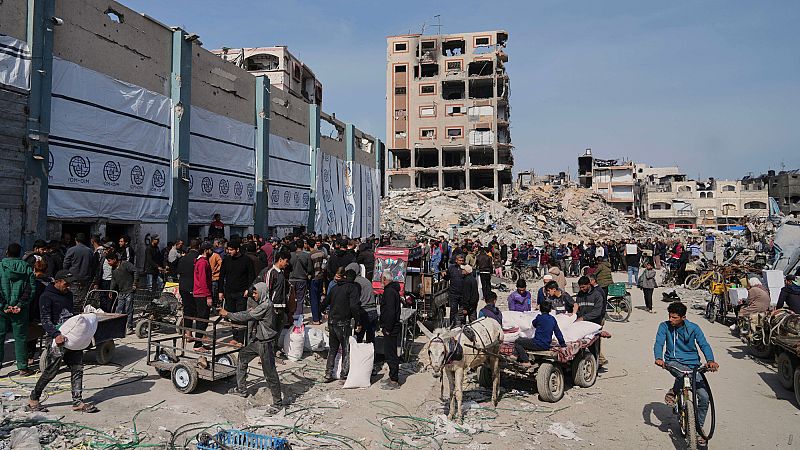
Amid growth of armed conflict across the world, the President of the International Committee of the Red Cross (ICRC) voiced concerns about the scale of destruction and the weakening of international humanitarian law.
“The number of conflicts today is higher than in the previous decades, with more intensity and higher level of destruction that I have ever seen,” Mirjana Spoljaric said on the fringes of the European Humanitarian Forum 2025 in Brussels this week.
The current humanitarian situation across the world is deteriorating and that “it is very urgent that we reverse that trend”, she said.
The Geneva Academy of International Humanitarian Law and Human Rights is currently monitoring more than 110 armed conflicts involving at least 55 states and more than 70 armed non-state actors.
The Middle East and North Africa is the most affected region, with more than 45 armed conflicts currently taking place in the area.
According to the European Commission, more than 300 million people are expected to require humanitarian assistance in 2025.
Spoljaric recounted how she had witnessed during recent trips to Chad and Gaza how levels of destruction resulting from incursions during the last decade had completely transformed them.
"The permissiveness regarding the destruction of civilian infrastructure, destruction of health services, and water systems has increased," she said.
The ICRC attributes this to increasing erosion of international humanitarian law, and Spoljaric cited Sudan, Ukraine, and Gaza as examples where humanitarian law is being loosely interpreted.
European Commissioner Hadja Lahbib also called for renewed political commitment to strengthen humanitarian diplomacy during the Forum, urging pressure on all parties in the Gaza conflict to “uphold international humanitarian law, which is blatantly violated”.
For the ICRC president, a major factor behind this erosion is negligence and “a laid-back attitude”.
“When you see international humanitarian law violations you try to find excuses why it's not a violation or you think this is far away, it doesn't concern me,” she said, “but with 120 conflicts and a globalised world, every time you accept and tolerate a blatant violation [of international law], you send the signal that it's okay, it is allowed to be done and then it's a question of time until it reaches your front door."
Less money, less action
Adding to this, she flagged that the humanitarian sector is facing unprecedented budget cuts following the United States’ decision to halt foreign and development funding at the beginning of the year.
If funding continues to decline, Spoljaric said that the ICRC will be forced to reduce its footprint on the ground. “We can't invent new money, so we will be able to deliver less,” she stressed.
The EU remains one of the ICRC’s top donors and partners and the world’s leading donor of humanitarian aid, having increased its initial 2025 humanitarian budget from €1.9 billion to €2.3 billion, according to Spoljaric.
“For us, the EU is important financially, of course, but even more so politically and definitely as a convener and as a facilitator of humanitarian access,” the ICRC president said.
Ukraine, the biggest program yet
At present, the ICRC’s largest program is in Ukraine, where they have over 700 people working.
“I don't know how long it will remain our largest program, given the different needs in the different regions, but it's historical to have such a comprehensive mission in one situation of conflict," she said.
The organisation has faced criticism for insufficient engagement in the conflict, particularly in relation to its record on visiting prisoners of war.
Spoljaric said that the ICRC maintains constant contact with the Ukrainian Red Cross and local authorities.
She acknowledged that gaining access to prisoners of war is always a complex negotiation with the parties involved in the conflict.
“We have been able to visit a couple of thousand detainees [...] but there's still an enormous gap of thousands of people that we haven't visited and that we don't know where they are, for most part,” she added.







